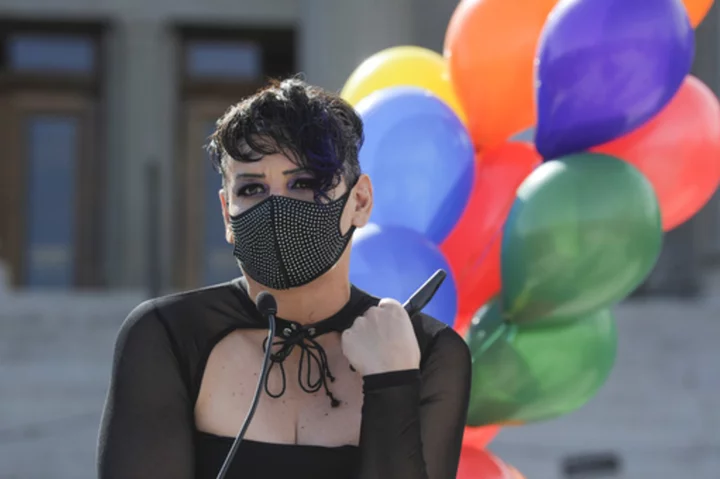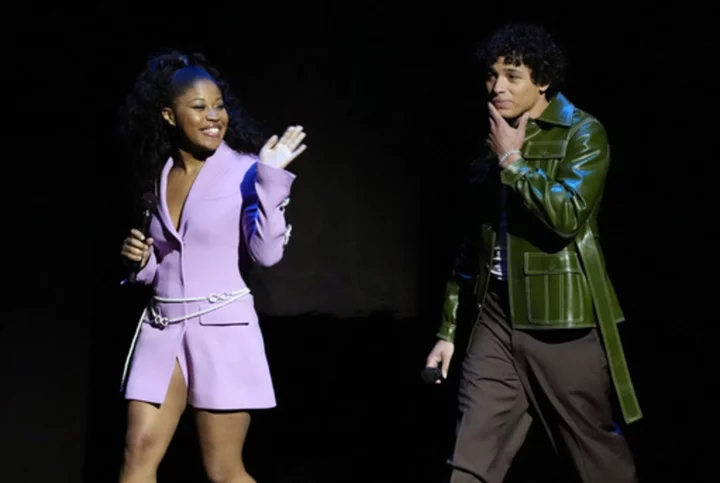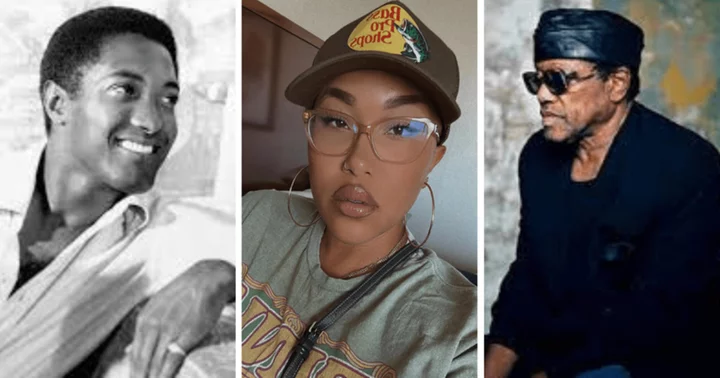HELENA, Mont. (AP) — A transgender woman, the owners of an independent bookstore and an educator who teaches in costume are among those challenging Montana's first-in-the-nation law that bans people dressed in drag from reading to children in public schools or libraries.
The federal lawsuit filed Thursday in Butte argues the law violates the free speech and equal protection guarantees in the U.S. Constitution.
The plaintiffs seek an injunction to temporarily block the law, a ruling that the law is unconstitutional and damages for Adria Jawort, whose planned talk on LGBTQ+ history at the Butte-Silver Bow Public Library was canceled in early June by county officials who cited the new legislation.
Similar laws in other states have been temporarily blocked while legal challenges play out in court.
The complaint calls the Montana law, sponsored by Republican Rep. Braxton Mitchell, “a breathtakingly ambiguous and overbroad bill, motivated by anti-LGBTQ+ animus.”
Like many Republican-led states, Montana’s conservative lawmakers also passed laws in recent sessions targeting transgender people. The state is among those to ban gender-affirming care for minors — which is also being challenged in court — and also passed a bill defining sex in state law as only male or female.
Montana became the first state to specifically ban drag kings and drag queens — defined as performers who adopt a flamboyant or parodic male or female persona with glamorous or exaggerated costumes and makeup — from reading books to children.
Unlike in other states, the performances do not need to contain a sexual element to be banned in Montana. The law took effect when Republican Gov. Greg Gianforte signed it on May 22.
Members of the LGBTQ+ community testified during legislative hearings that the law would be misused to silence transgender people and ban teachers from wearing costumes while reading to their classes. It cannot block drag reading events at private businesses.
Chelsia Rice, who co-owns the Montana Book Co. with her spouse, Charlie Crawford, said they wanted to get involved, “to make sure everyone who this law effects is supported and defended by those that have the wherewithal and fortitude to do it.”
Jawort's talk, scheduled for June 2 at the Butte library, was canceled a day earlier after county officials decided to err on the side of caution after receiving a complaint via Facebook about whether her talk would violate the new law.
Jawort, who is Northern Cheyenne, was invited back to Butte on June 20 by a nonprofit foundation. About 100 people attended, The Montana Standard reported.
She talks about how two-spirit people — which includes transgender people — have been part of Native American tribes for generations and were accepted for who they were and sometimes revered. She did not dress in drag, but wore a black dress and hat along with purple lipstick and fingernail polish.
“It was gracious of her to return,” said library director Steph Johnson, who attended the talk.
Rachel Corcoran dressed up as literary, historical or pop culture characters to teach special education students at a Billings high school, and still wears costumes at times when she visits classrooms while coaching teachers of first-time English learners, she said.
As a member of the LGBTQ+ community, Corcoran said she was aware the drag ban had been proposed, but soon “realized it was going to impact me as a teacher, specifically with dressing up for school days or how I wanted to run a classroom or celebrate for homecoming or Red Ribbon Week,” a drug prevention campaign.
Other plaintiffs in the case include businesses, organizations and community centers that plan and host all-ages drag events, a fitness studio and an independent theater that receives state grants and may show PG-13 or R-rated films. Such films could violate the part of the law that prohibits sexually oriented performances in locations that receive any funding from the state if minors are present.
The bill's co-sponsors, which included more than half the Republicans in the state Legislature, sought to forbid drag shows “and stifle the expression of individuals who do not conform to conventional gender presentations," the lawsuit charges.
People who support such legislation believe drag performers are inherently sexual, but they aren't, Jawort said.
She likened it to Chris Rock doing an R-rated comedy performance and then recording the voice of the zebra in the animated children's movie “Madagascar.”
“You adjust to your audience,” she said.
Schools, libraries or businesses that violate the law could be fined while educators and librarians could be suspended for a year or lose their credentials after a second conviction.
The law also allows anyone involved in putting on a drag performance to be sued within 10 years of the event by a minor who attended the performance, even if the minor and their guardian had consented at the time, the lawsuit notes.
In other states, a Tennessee bill to restrict drag performances in public spaces or in the presence of children was temporarily blocked in March by a federal judge who sided with a group that filed a lawsuit saying the statute violates their First Amendment rights.
A judge in Florida also cited First Amendment rights in blocking a drag ban in a lawsuit filed by a bar and restaurant that hosts all-ages drag shows on Sundays.









